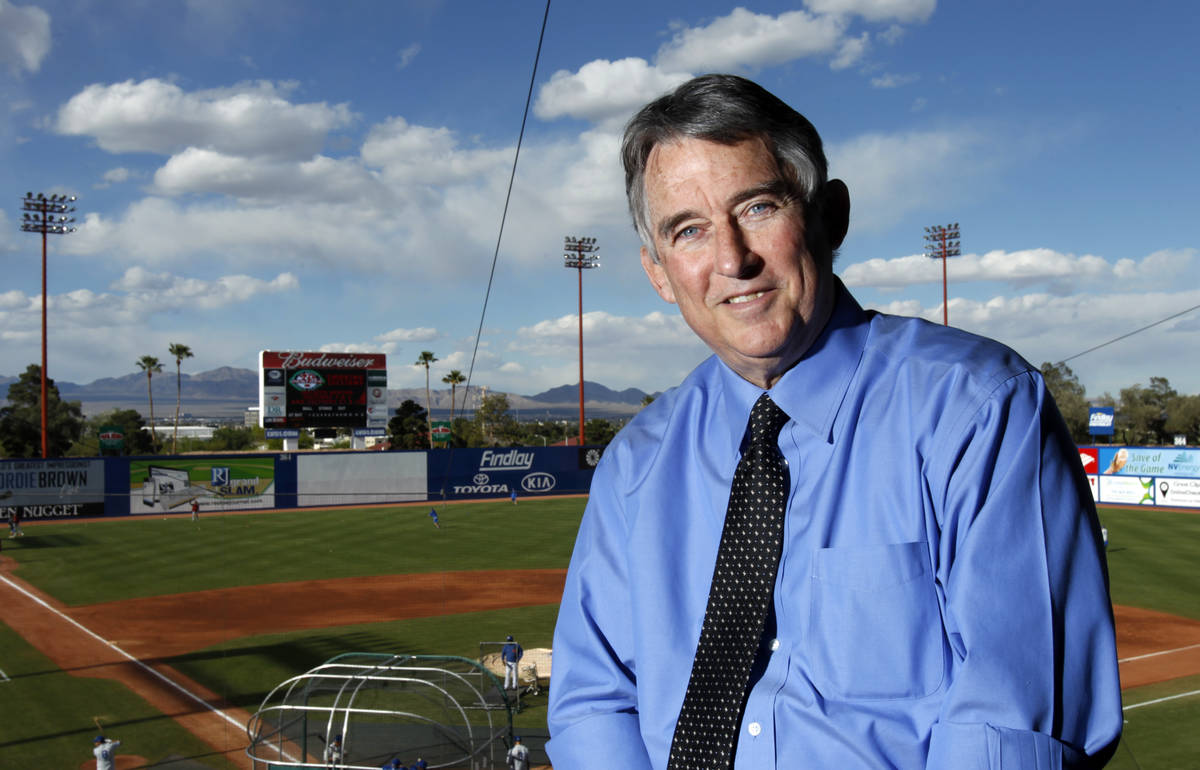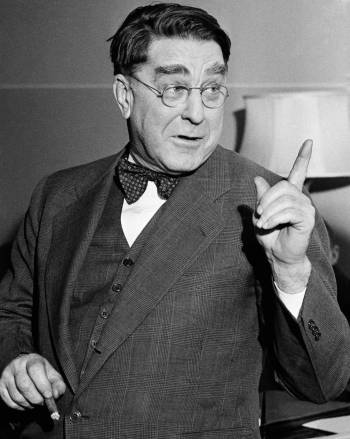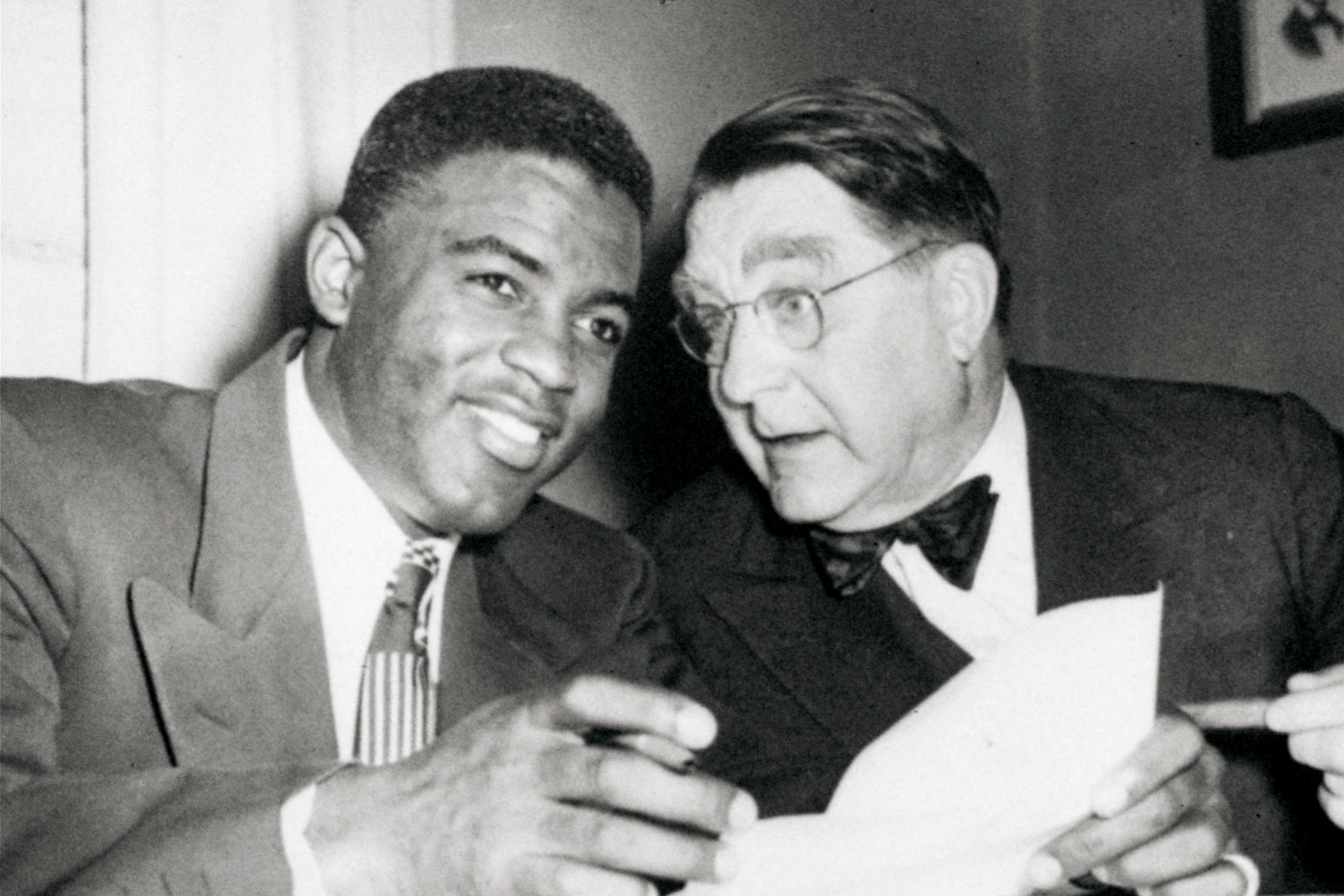The 2013 movie “42” was nearly as much about how Branch Rickey transformed baseball as it was Jackie Robinson breaking the color barrier.
Rickey was the one who signed Robinson, who made his historic major league debut in 1947 with the Brooklyn Dodgers and forever changed the game.
But Rickey also altered the game in many other ways, including creating a centralized spring training complex, batting cages, pitching machines and batting helmets. He also developed the minor league system that brought baseball to cities and towns of all sizes and gave players expanded opportunities to prove they could make it to the big leagues.
Now that minor league system is in trouble. Major League Baseball put in motion the process of contraction even before the coronavirus pandemic, an illness that has threatened every baseball team in some fashion because of the nationwide lockdowns and the ongoing threat posed by the virus.
“Nobody’s OK,” said Branch Rickey III, Rickey’s grandson and president of the Triple-A Pacific Coast League. “Everybody is hurting right now.”

There was no formal minor league system in place — independent leagues populated the country outside the majors — before Rickey became general manager of the St. Louis Cardinals in the 1930s. Future Hall of Famers Dizzy Dean and Joe Medwick were among the stars that Rickey cultivated in the minors, and they formed the backbone of the “Gashouse Gang” that won two World Series titles in four years.
Rickey, however, faced powerful opposition from MLB Commissioner Kenesaw Mountain Landis, who forced him to release more than 70 players in 1938 because he considered the Cardinals’ elaborate minor league system an unfair advantage.
So they started emulating, most especially the Yankees starting forming theirs. … Other organizations started copying because they didn’t want to be bypassed.
Branch Rickey III

“(Rickey) had created the system in advance of Landis, and Landis was never able to completely disassemble it,” Rickey III said. “Landis continually fought him on it. St. Louis was the smallest market and had the least financial strength of any team in Major League Baseball, and (Rickey) needed some way around. Other teams could afford to buy their players, so in his mind, St. Louis had to grow theirs.”
Landis’ efforts didn’t prevent Rickey from moving forward, and with World War II, he was aggressive in signing players as other clubs took a more conservative approach. The payoff came in 1942 when the Cardinals won 106 games and the World Series.
“Everybody started catching on this was working,” Rickey III said. “So they started emulating, most especially the Yankees starting forming theirs. … Other organizations started copying because they didn’t want to be bypassed.”
Now Rickey III carries on his family legacy as head of the PCL, which includes the Aviators. That level is expected to be left intact after the pandemic ends, but the structure below is likely to be overhauled.
Baseball America reported that MLB was planning to contract 42 teams mostly from Rookie League to Single A, but four Double-A teams also were included.
Add in the pandemic, and there is the real possibility that no minor league ball will be played this year because those teams don’t have the lucrative TV contracts to offset not being able to play in front of fans.
“You’ve got to have people,” said Don Logan, Aviators president and chief operating officer. “It costs too much to activate the building without that.”
Rickey’s grandfather, who was inducted into the Hall of Fame in 1967, installed lasting changes in baseball that are still evident today.
Branch Rickey’s minor-league legacy
1924
As St. Louis’ general manager, Rickey buys a team in Houston, beginning a chain of minor league teams for the Cardinals. The minor league system had been a series of independent leagues.
1931
The Cardinals win the World Series, 4-3 over the Philadelphia Athletics.
1934
The Cardinals win the World Series, 4-3 over the Detroit Tigers.
1938
Major League Baseball Commissioner Kenesaw Mountain Landis believes the Cardinals have an unfair advantage and forces Rickey to release more than 70 players.
1942
The Cardinals win the World Series, 4-1 over the New York Yankees.
1942
Rickey is hired as general manager of the Brooklyn Dodgers.
1945
The Dodgers sign Jackie Robinson to a minor-league contract, and he breaks the color barrier two years later..
1947
Rickey agrees to a deal with Vero Beach, Florida, to establish Dodgertown, the first centralized spring-training complex.
1967
Rickey is inducted posthumously into the Hall of Fame.
Now his grandson is on the front lines trying to preserve what was established and what has served the sport and its communities for decades. Like his grandfather, much of the opposition for Rickey III comes from the commissioner, this time Rob Manfred and his efforts to downsize.
The minor league system is a major part of the family legacy, and Rickey III wants to keep it that way. He also remains hopeful baseball in the minors will be played this season.
“I haven’t thrown in the towel yet,” he said. “We don’t throw in the towel that easily.”
Rickey III paused.
“Time’s getting short,” he added. “Time’s getting very short.”
Contact reporter Mark Anderson at manderson@reviewjournal.com. Follow @markanderson65 on Twitter.
Branch Rickey's minor league legacy
1924 — As St. Louis' general manager, Rickey buys a team in Houston, beginning a chain of minor league teams for the Cardinals. The minor league system had been a series of independent leagues.
1931 — The Cardinals win the World Series 4-3 over the Philadelphia Athletics.
1934 — The Cardinals win the World Series 4-3 over the Detroit Tigers.
1938 — Major League Baseball Commissioner Kenesaw Mountain Landis believes the Cardinals have an unfair advantage and forces Rickey to release more than 70 players.
1942 — The Cardinals win the World Series 4-1 over the New York Yankees.
1942 — Rickey is hired as general manager of the Brooklyn Dodgers.
1945 — The Dodgers sign Jackie Robinson to a minor league contract, and he breaks the color barrier two years later.
1947 — Rickey agrees to a deal with Vero Beach, Florida, to establish Dodgertown, the first centralized spring training complex.
1967 — Rickey is inducted posthumously into the Hall of Fame.














